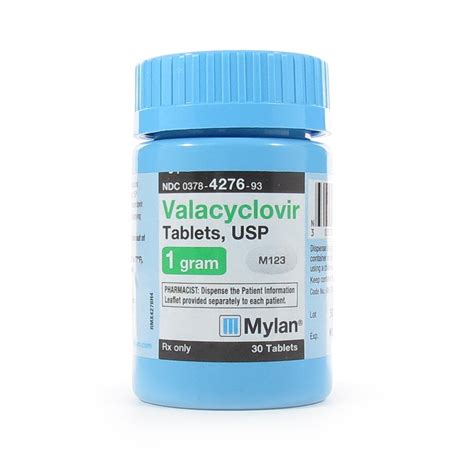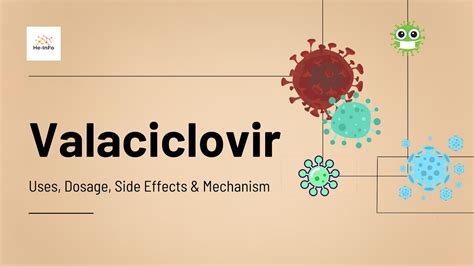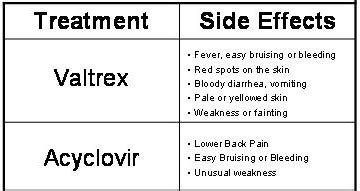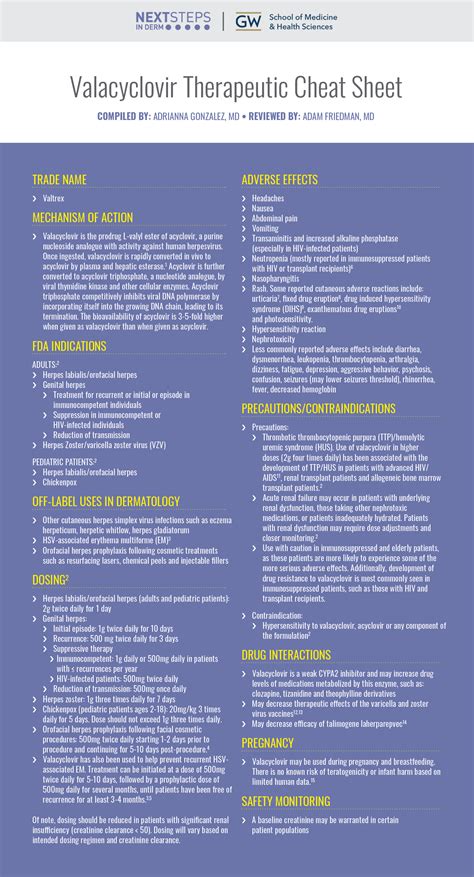Intro
Discover why Valacyclovir is not an antibiotic, but an antiviral medication used to treat herpes, cold sores, and genital herpes, with its mechanism, dosage, and side effects, contrasting with antibiotic properties and uses.
Valacyclovir is a medication that is commonly used to treat viral infections, particularly those caused by the herpes simplex virus (HSV) and varicella-zoster virus (VZV). Despite its widespread use, many people are under the misconception that valacyclovir is an antibiotic. However, this is not the case. In fact, valacyclovir is an antiviral medication, which means it is specifically designed to target and eliminate viral infections, rather than bacterial infections.
The distinction between antiviral and antibiotic medications is crucial, as it highlights the different mechanisms of action and the specific types of infections that each type of medication is intended to treat. Antibiotics, such as penicillin and amoxicillin, are designed to target and kill bacteria, whereas antiviral medications, such as valacyclovir, are designed to target and inhibit the replication of viruses. This difference in mechanism of action is essential to understanding why valacyclovir is not an antibiotic and why it is not effective against bacterial infections.
The importance of understanding the difference between antiviral and antibiotic medications cannot be overstated. The overuse and misuse of antibiotics have contributed to the growing problem of antibiotic resistance, which occurs when bacteria develop mechanisms to evade the effects of antibiotics. This has serious implications for public health, as it makes it increasingly difficult to treat bacterial infections effectively. By recognizing that valacyclovir is not an antibiotic, healthcare providers and patients can ensure that it is used appropriately and that the risk of antibiotic resistance is minimized.
What Is Valacyclovir?

Valacyclovir is a prodrug, which means that it is converted into its active form, acyclovir, in the body. Acyclovir is a nucleoside analog, which means that it is similar in structure to the nucleosides that are used by viruses to replicate their genetic material. By incorporating itself into the viral DNA, acyclovir inhibits the replication of the virus, thereby reducing the severity and duration of the infection. Valacyclovir is available in oral and topical formulations, and it is commonly used to treat a range of viral infections, including genital herpes, cold sores, and shingles.
How Does Valacyclovir Work?
Valacyclovir works by targeting the viral enzymes that are responsible for replicating the viral DNA. By inhibiting these enzymes, valacyclovir reduces the amount of viral DNA that is produced, which in turn reduces the severity of the infection. The exact mechanism of action of valacyclovir involves the following steps:- Valacyclovir is converted into its active form, acyclovir, in the body.
- Acyclovir is phosphorylated by the viral enzyme thymidine kinase, which converts it into its active form.
- The active form of acyclovir is then incorporated into the viral DNA, where it inhibits the replication of the virus.
- By reducing the replication of the virus, valacyclovir reduces the severity and duration of the infection.
Benefits Of Valacyclovir

Valacyclovir has several benefits that make it a popular choice for treating viral infections. Some of the key benefits of valacyclovir include:
- Effective against a range of viral infections, including genital herpes, cold sores, and shingles.
- Reduces the severity and duration of the infection.
- Available in oral and topical formulations, making it convenient to use.
- Generally well-tolerated, with few side effects.
- Can be used to prevent outbreaks of viral infections, such as genital herpes.
Common Uses Of Valacyclovir
Valacyclovir is commonly used to treat a range of viral infections, including:- Genital herpes: Valacyclovir is effective against both HSV-1 and HSV-2, and it can be used to reduce the severity and duration of outbreaks.
- Cold sores: Valacyclovir can be used to treat cold sores, which are caused by HSV-1.
- Shingles: Valacyclovir can be used to treat shingles, which is caused by VZV.
- Herpes zoster: Valacyclovir can be used to treat herpes zoster, which is caused by VZV.
Side Effects Of Valacyclovir

Like all medications, valacyclovir can cause side effects. Some of the common side effects of valacyclovir include:
- Nausea and vomiting
- Diarrhea
- Headache
- Fatigue
- Dizziness
These side effects are generally mild and temporary, and they usually resolve on their own within a few days. However, in some cases, valacyclovir can cause more serious side effects, such as:
- Allergic reactions: Valacyclovir can cause allergic reactions, such as hives, itching, and difficulty breathing.
- Kidney problems: Valacyclovir can cause kidney problems, such as kidney failure, in people with pre-existing kidney disease.
- Neurological problems: Valacyclovir can cause neurological problems, such as seizures, confusion, and agitation.
Precautions And Interactions
Valacyclovir can interact with other medications, and it may not be suitable for everyone. Some of the precautions and interactions to be aware of include:- Kidney disease: Valacyclovir can cause kidney problems, so people with pre-existing kidney disease should use it with caution.
- Pregnancy and breastfeeding: Valacyclovir is generally safe to use during pregnancy and breastfeeding, but it should only be used under the guidance of a healthcare provider.
- Other medications: Valacyclovir can interact with other medications, such as probenecid, cimetidine, and digoxin.
Conclusion And Final Thoughts

In conclusion, valacyclovir is a highly effective antiviral medication that is commonly used to treat a range of viral infections. By understanding how valacyclovir works and its benefits and side effects, healthcare providers and patients can ensure that it is used appropriately and safely. Whether you are treating a viral infection or preventing outbreaks, valacyclovir is a valuable tool in the fight against viral diseases.
We invite you to share your thoughts and experiences with valacyclovir in the comments section below. Have you used valacyclovir to treat a viral infection? What were your results? Do you have any questions or concerns about valacyclovir? We would be happy to hear from you and provide any additional information or guidance you may need.
What is valacyclovir used for?
+Valacyclovir is used to treat viral infections, such as genital herpes, cold sores, and shingles.
Is valacyclovir an antibiotic?
+No, valacyclovir is not an antibiotic. It is an antiviral medication that is specifically designed to target and eliminate viral infections.
What are the common side effects of valacyclovir?
+The common side effects of valacyclovir include nausea and vomiting, diarrhea, headache, fatigue, and dizziness.
Can valacyclovir be used during pregnancy and breastfeeding?
+Valacyclovir is generally safe to use during pregnancy and breastfeeding, but it should only be used under the guidance of a healthcare provider.
How does valacyclovir work?
+Valacyclovir works by targeting the viral enzymes that are responsible for replicating the viral DNA, thereby reducing the severity and duration of the infection.
